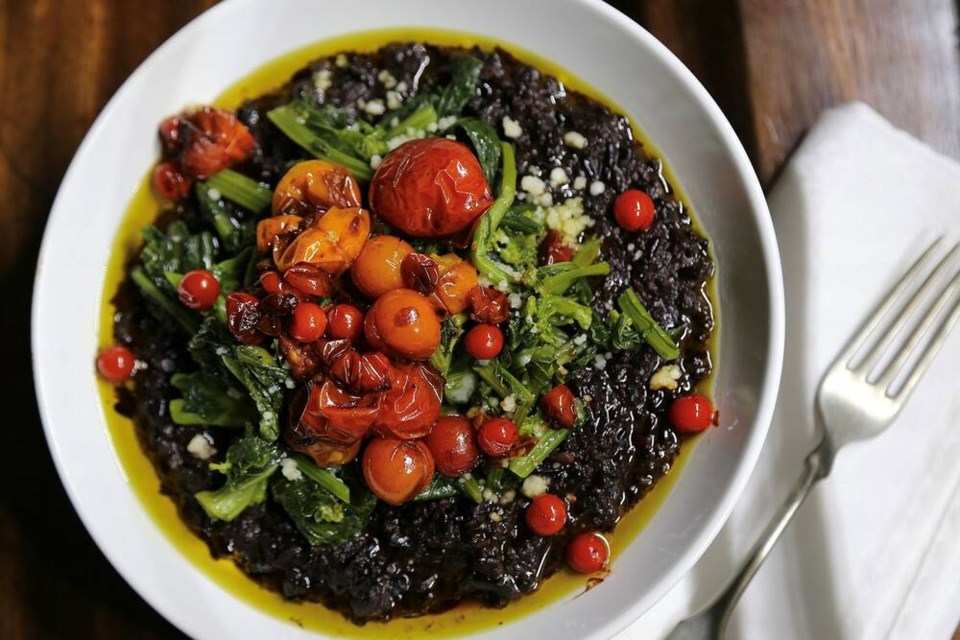It is too early to dig about in the garden, but it’s never too early to dream and to get organized for indoor sowing of nightshades like tomatoes, eggplants and peppers. Ordering seeds before favourite varieties sell out should be done sooner than later. Ordering living soil for delivery later should be done early as well.
I order all but my Sungold tomato seeds from independent organic farms in Canada and U.S. border states. Just as I like to know who grows fresh produce that I buy, I want to know who grows the seeds I plant in my home garden. Seed stock sovereignty is critical to local and regional food security.
With six weeks or so to go before indoor sowing season, now is a good time to order seeds from small farms. We save money on shipping and receive more seeds per dollar spent. We also enjoy knowing that our hard-earned dollars help some of the hardest-working people (farmers and growers) on the planet continue doing work that is essential to our survival.
In cold climates like ours, with a short growing season, it is especially important to order seeds with built-in resilience. I know that, when I order tomatoes from Metchosin Farm, B.C. Eco-Seed Co-op or Greta’s Family Gardens, I will receive hardy Canadian seed stock that will try hard, be grateful, produce prolifically and go down fighting – apologetically even – if conditions become just too grim.
Varieties like Manitoba, Sub-Arctic and Scotia hint at the grit bred into these varieties over decades of stalwart service under sub-prime conditions.
Of greater importance than seeds is the soil they are grown in. Conventional wisdom tells us to start seeds in sterile medium, but I’ve never done so, and my tomatoes, if I do say so myself, are bloody fabulous. The plants have trunks like trees, robust root structures, and they produce sweet, intensely flavoured, nutrient-dense fruit prolifically, long past their expected demise.
I credit my tomato success primarily to two things: resilient seed stock and living soil. Living soil is rich in microbiology, fungi, inoculated biochar as well as myriad macro and micro-nutrients. It imbues tomatoes with the vitality and phytonutrients that our bodies need to thrive. Deep divers can learn more from my blog posts Tomato Tips & Tricks, Hardening Off and Sowing Seeds of Change.
To experience success with living soil and to prevent dampening-off of fragile stems, it is critical to provide seedlings with adequate heat, light and air circulation, and to work with soil from a trusted soil works. Watering with stale tap water ensures that soil biology isn’t killed by chlorine. I leave five-gallon buckets of tap water outside for at least 24 hours, to allow chlorine to dissipate. Better yet, fill buckets with rainwater – we have time and plenty of rain.
This year we are growing vining-type tomatoes exclusively. I like that indeterminate varieties produce consistently throughout the season. By growing a variety of sizes and colours, I am continuously delighted and inspired. We buy canning tomatoes in bulk, from trusted organic farmers at the end of the summer.
From Metchosin Farms I ordered Strawberry Cherry, White Cherry, Yellow Peach, Metchosin Pink, Indigo Rose and Hawaiian Currant tomato seeds. From Greta’s Family Gardens: Early Cascade, Orange Strawberry, Petit Moineau, Green Zebra and Sweet Solano. From Row 7 Seeds: Sweet Prince and Midnight Roma.
I love the way that a rainbow of fresh or blackened cherry tomatoes of all sizes looks in a salad or on grilled fish. And I love that my husband, children and our tiny neighbours delight in discovering new favourites each year, as they pass by the vines en route to the kitchen door.
Living Soil is available in one-cubic-foot bags (enough to fill eight 72-cell seed trays) from Terra Flora Soil Works in Chilliwack. Soil farmer Andrew tells me that Dana from Valley to Shore can assist with delivery to the North Shore, as part of her weekly CSA-on-Demand service. Use code upfront10 on Andrew’s website for a reader discount.
Laura Marie Neubert is a West Vancouver-based urban permaculture designer. Follow her on Instagram @upfrontandbeautiful, learn more about permaculture by visiting her Upfront & Beautiful website or email your questions to her here.
For a taste of permaculture, click on the YouTube link below:




.jpg;w=120;h=80;mode=crop)